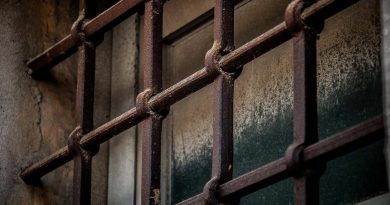Kyrgyzstan: HWR is concerned about a number of criminal cases against journalists
Human Rights Watch reported recently that the authorities of Kyrgyzstan have stepped up their harassment of journalists and independent media outlets in recent months with a series of criminal investigations into their activities.
HRW points out that on March 29, 2022, at the suit of the Prosecutor General’s Office, the District Court of Bishkek recognized the private media outlet Next TV as extremist for reposting a commentary from the Ukrainian media outlet Ukraine Now. The report said that Kyrgyzstan would provide military support to Russian troops in Ukraine. The court ruled on the preliminary detention of Director of Next TV Taalaibek Duishenbiev on charges of inciting ethnic hatred for reposting the Ukrainian publication.
“The authorities of Kyrgyzstan declare that they protect freedom of speech, but are trying to silence critical voices and pin down independent media through criminal investigations and bogus charges. The authorities should release Taalaibek Duishenbiev and drop all unfounded charges against him and other media outlets,” said Saynat Sultanalieva, Central Asia researcher at Human Rights Watch.
The State Committee for National Security opened a criminal case against Next TV on March 3. Duishenbiev was detained. His office was searched, his equipment was confiscated, and then the premises were sealed.
On March 5, the Pervomaiskiy District Court appointed Duishenbiev two months of pre-trial detention and said that for reposting the comment on social networks, he would be charged with inciting ethnic hatred under Article 330 of the Criminal Code of the Russian Federation. If Duishenbiev is found guilty, he will face up to seven years in prison. On March 24, the City Court of Bishkek upheld the District Court’s ruling on pre-trial detention. This decision is not subject to further appeal.
Next TV’s lawyers have appealed against the decision to seal the TV channel’s office. But on March 22, the District Court dismissed the appeal, leaving the channel’s employees without access to the equipment and materials they use in their work.
Also on March 22, the Prosecutor General’s Office filed a petition with the same Pervomaiskiy District Court to recognize the reposts of the comment as extremist, as well as to ban Next TV from exploiting and distributing its media products on other online and offline news platforms.
On March 29, the District Court recognized the repost of the comment as extremist, but rejected the petition to ban the media. The TV channel’s lawyers will appeal against the definition of extremist in the City Court of Bishkek.
On March 5, the Ombudsman of Kyrgyzstan Atyr Abdrakhmatova urged the courts to look into the legality of closing the office of Next TV by special services.
Human Rights Watch notes that Next TV is the third media outlet targeted by the authorities of Kyrgyzstan in recent months.
It’s specified that on February 1, the Prosecutor’s Office of Pervomaiskiy district opened a criminal case on the fact of reprinting an article of the Tajik media Asia Plus by Kaktus.media concerning the clash on the Kyrgyz-Tajik border on January 27. A criminal case against Kaktus.media was initiated under Article 407 “Propaganda of war, that is, dissemination of views, ideas or appeals in any form with the aim of causing aggression of one country against another or unleashing a military conflict” of the Criminal Code of the Kyrgyz Republic.
The Prosecutor’s Office said that these charges constitute a criminal offense under Article 407 of the Criminal Code, “propaganda of war” and dissemination of information aimed at “provoking aggression of one country against another or inciting a military conflict”. The investigation is ongoing.
On January 22, police of Bishkek detained investigative journalist Bolot Temirov, Director of the independent online publication Temirov Live and former co-host of Factcheck.KG, who works to refute false claims and propaganda, accused of illegal drug production. The police also ransacked his office and confiscated computer processors, hard drives and documents. On the same day, Temirov was released with instructions not to leave the country. Temirov claims that the drugs, allegedly found during the search, were planted.
“Many Kyrgyz media see his case as retaliation for his team’s investigation into dubious fuel export schemes linked to the leadership of the State Committee for National Security. The report on this investigation was published on their YouTube channel just two days before the authorities raided his office and detained him,” HRW said in its statement.
On January 31, the Kyrgyz Media Policy Institute called the allegations of drug production against Temirov Live and Kaktus.media a mass attack on freedom of expression. On February 15, dozens of journalists, media and expert organizations signed an open letter on this issue.
“This crackdown on investigative journalists and independent media comes amid other efforts to censor free speech,” Human Rights Watch notes. Thus, on February 21, the Ministry of Culture, Information, Sports and Youth Policy submitted for public consideration a draft decree on the implementation of the law “On protection from false information”, signed by President Sadyr Japarov on August 23, 2021. The organization has previously reported that the law paves the way for government censorship and is at variance with Kyrgyzstan’s national and international human rights obligations.
The draft decree would allow a person who claims that a media outlet has published false information to ask the owners of a website or social media page to remove the information. If they refuse, the person can ask the newly created Communications Regulation and Supervision Service under the Ministry of Digital Development to suspend the website or page for up to two months.
The Kyrgyz Association of Telecom Operators said the decree would be impossible to enforce and it would undermine the law on electric and postal communications, which states that only a court can order a restriction on access to information if it decides that the information infringes honor and dignity of person.




